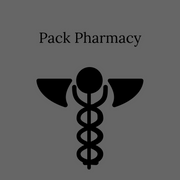
High cholesterol affects more than 102 million American adults and can increase the risk of heart attacks, stroke, and other health conditions. Many people who suffer from this have to take prescriptions for it. By educating yourself about cholesterol, you can lower your risk of developing it. Here are some frequently asked questions and answers about high cholesterol.
What You Should Know About Cholesterol
What is cholesterol?
Cholesterol refers to the waxy substance that’s found in your blood and many of the foods you consume. While your body needs cholesterol to function properly, too much of it can narrow your arteries and increase the risk of health issues. Foods that contain high amounts of cholesterol include eggs, cheese, sardines, and processed meats. When your cholesterol is too high, it can increase your risk of several health issues, including heart attacks, strokes, and high blood pressure.
What is considered high cholesterol?
Adults should have a total blood cholesterol level less than 200 mg/dL. Doctors recommend for adults aged 20 or older to get their cholesterol levels checked every five years. People with heart disease or a family history of high cholesterol may need to get their levels checked more frequently. A simple blood test is all that’s needed to measure your cholesterol levels. Technicians will measure HDL cholesterol, LDL cholesterol, and triglycerides in the blood.
Can medications treat high cholesterol?
 Yes, there are several cholesterol medications that require prescriptions, such as Niacin, Statins, and Fibric acid derivatives. Statins, for example, work by blocking a substance your body requires to make cholesterol.
Yes, there are several cholesterol medications that require prescriptions, such as Niacin, Statins, and Fibric acid derivatives. Statins, for example, work by blocking a substance your body requires to make cholesterol.
Niacin decreases the production of triglycerides and very low-density lipoprotein, ultimately reducing LDL cholesterol. If you were recently diagnosed with high cholesterol, your doctor could write you prescriptions to take to your local pharmacy.
How can I lower my cholesterol?
Making a few lifestyle changes can help lower your cholesterol and improve your overall health. For example, losing weight can drop your cholesterol numbers. Limit your intake of foods that contain high amounts of saturated fats and cholesterol, such as pork and eggs, and eat more fish, whole grains, fruits, and vegetables. Exercising regularly and quitting smoking can also lower your cholesterol.
If you have questions about your prescriptions, turn to Pack Pharmacy in Cincinnati, OH. The pharmacy has been providing cost-effective pharmaceutical solutions for 70 years and knows their customers on a personal basis. These dedicated staff members can fill your prescription within minutes and carry a wide selection of over-the-counter medicines and first aid supplies. For more information about their services, call (513) 871-7770 or visit their website.
About the Business
Have a question? Ask the experts!
Send your question

